Is Climate Change Bad for Birds?
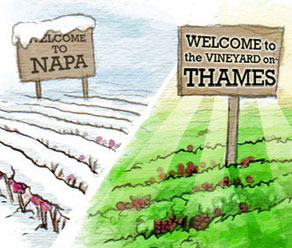 Regardless of whose theory you buy or what label you want to put on it, weather patterns are changing. Don’t think anyone can say how long that’ll last, but in the short term one effect of it – which also happens to be a symptom of a generally warmer climate – is more precipitation.
Regardless of whose theory you buy or what label you want to put on it, weather patterns are changing. Don’t think anyone can say how long that’ll last, but in the short term one effect of it – which also happens to be a symptom of a generally warmer climate – is more precipitation.
For us bird-heads, that’s meant more rain in the spring, which has put the whammy on birds. We’re not biologists, but from what we’ve read seems that more rain means wetter chicks during the period when they can’t regulate their body temps, which means more dead chicks. Hens re-nest later if they re-nest at all, but it’s not optimal.
As an example, here’s a note we recently got from a fellow Serious hunter about Wisconsin:
Last year…our group had over 100 flushes. This year, less than 15. That is what a very wet and cold spring will do to the numbers. We have bagged fewer than 20 grouse this year whereas the expectations were three times that.
Then there’s the snow in the winter, that has hammered pheasants (and bobwhites) in many west-of-the-Mississippi states, notably Iowa.
Where does that leave us…and the birds? Don’t know, but here’s more on the weather in general and grouse specifically, taken from Minnesota’s recently published draft grouse management plan:
During the next 100 years average temperatures in Minnesota are projected to increase by 6-10 degrees in winter and 7-16 degrees in summer. Precipitation is projected to decline by 0-15% during summer but increase 5-30% overall.
The frequency of extreme precipitation events is projected to increase 50-100%, which will result in greater surface runoff and less percolation into the soil. Increasing temperatures and declining soil moisture during summer will have dramatic effects on plant communities.
Vegetation patterns are expected to adjust in response to climate change. A shift in the boundary between grassland and deciduous forest biomes is likely. Tree species composition in forests will change.
Several climate change models predict warmer, drier conditions for existing deciduous forests. Under this scenario, if managed with fire, deciduous forests will tend toward savanna types (fire-dependent hardwood systems) and the range of mesic (moist but well-drained) hardwood forests will likely contract. If not managed with fire, these areas will likely become brushlands or become dominated by non-native woody invasive species.
[Two scientists] predict expansions of oak-hickory and oak-pine forests (fire-dependent drier forest types) as well as reductions in aspen/birch forests (a mesic hardwood type).
Climate change will be beneficial for some species, but is likely to be detrimental for many species. Ruffed grouse are likely less sensitive to climate change than habitat specialists such as spruce grouse.
Nonetheless, areas of vulnerability include the potential changes in aspen/birch forests, less snow depth [less?] for winter roosting and more frequent and extreme rain events that affect chick survival.
Just one state and one species, but doesn’t sound too great, does it?
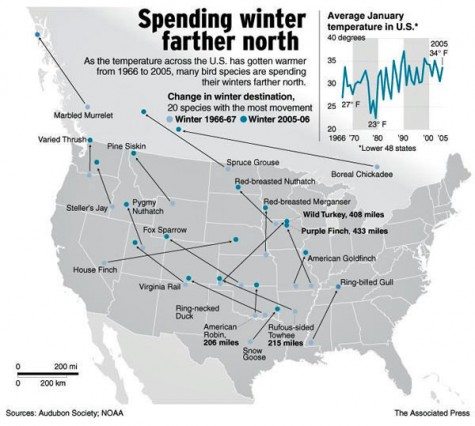
An indicator of how some birds are coping, but most upland birds can't do this.... (Source: audubon.org)
Category: Pheasants, Quail, Ruffed Grouse, Spring, Weather, Winter





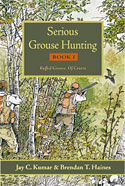

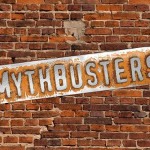
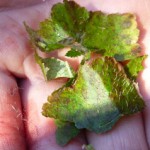
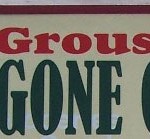
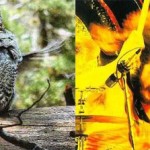
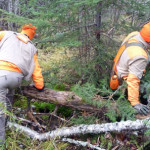
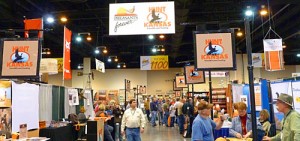
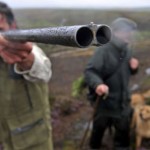
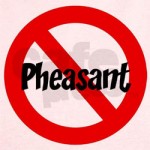
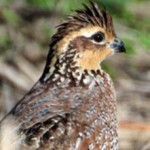
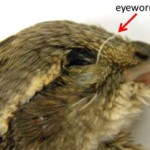
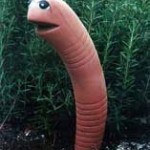
I think at some point the sporting/hunting community is going to need to address their complacency in climate change vis a vie the policies that we have indirectly or directly supported by our vote. For years science has warned about climate change, in the 80’s it was called global warming, and I remember learning about it through several science classes and projects in school and college. Any movement towards attempting to address climate change was swiftly meet with lobbyists armed with their corporate funded phony science and false job killing claims. And lets call a spade a spade, the Republican party, whom we all love because they protect our gun rights and keep our taxes low is on the payroll to be climate change deniers. It is good that the sporting/hunting community is recognizing the threat to our beloved sport, but we should consider how has our vote contributed to this.
Hey Chris…forget everything you learned in college as quickly as possible. You’ll be better off. Global warming propaganda started after the global cooling propaganda of the 70’s ran out of steam in the 80’s and was a HOT topic until just a couple of years ago when it was discredited. Now “they” call it climate change. Well, climate ALWAYS changes! Whey published reports say this is the hottest summer since 1932 that means 1932 was hotter then. Right? I live in Michigan where a one mile thick glacier sat thousands of years ago. Its gone. What kind of “climate change” baked that sucker down to nothing? Remember, a your left wing scientists are really just left wingers.
Happy 2nd ammendment.
Well, don’t know the cause of the warming trend here in interior Alaska, but I know that warmer winter weather can’t be a bad thing for grouse (ruffed, spruce&sharp-tailed) that haven’t had to face as many long stretches of absolutely frigid cold during the last decade or more. We hardly ever see minus 50 any more, and it has been much warmer for longer periods going into winter as well. I’m sure we will get slammed with week long stretches of -30 to -40 weather as we move through winter, but I’ll bet every single night when a grouse doesn’t have to endure energy robbing frigid cold is a blessing to the grouse as well as a bird hunter hoping the bird will live through the winter, breed successfully, and provide lots of grouse in the autumn for the dogs.
Jim
We are experiencing a climate variation. way to soon that the climate is changing permanently. Greenland once was green. now it is not. Maybe it will again. Did we cause it or is it beyond our control. Even if we caused it, we can’t undo what took over a hundred years to supposedly cause the change. The global warming mantra is the ultimate in liberal arrogance. Find a problem. Call it a HUUGE problem. Prescribe a supposed solution and force it on everyone. discover 50 years later that nature can’t be controlled. Move on to next huge problem.
Just a rant.
don’t know what the guy in wisconsin was talking about regarding weather. In far northern wisconsin we had the warmest winter and spring ever. Not cold and wet. Even though the vaunted DNR said drumming was down 20% and the cycle was on the second year down, I found brood counts up and flushes down a bit from last year but still very, very good. averaged about 30-35 flushes a day. This winter has stayed mild but we still have good snow, just no sub zero temps. Global warming has been good so far.
In Ontario, this is now the second winter in a row with practically no snow. We had a dry spring 2012 and hot dry summer. We’ve also had one of the worst grouse seasons (2012-13) in recent memory. I don’t think there’s a single prediction for how this is going to affect game species. It will no doubt benefit some. On the down side I’m getting sick of these 30 degree celsius September days, the dogs get killed!!